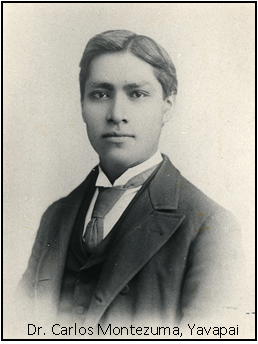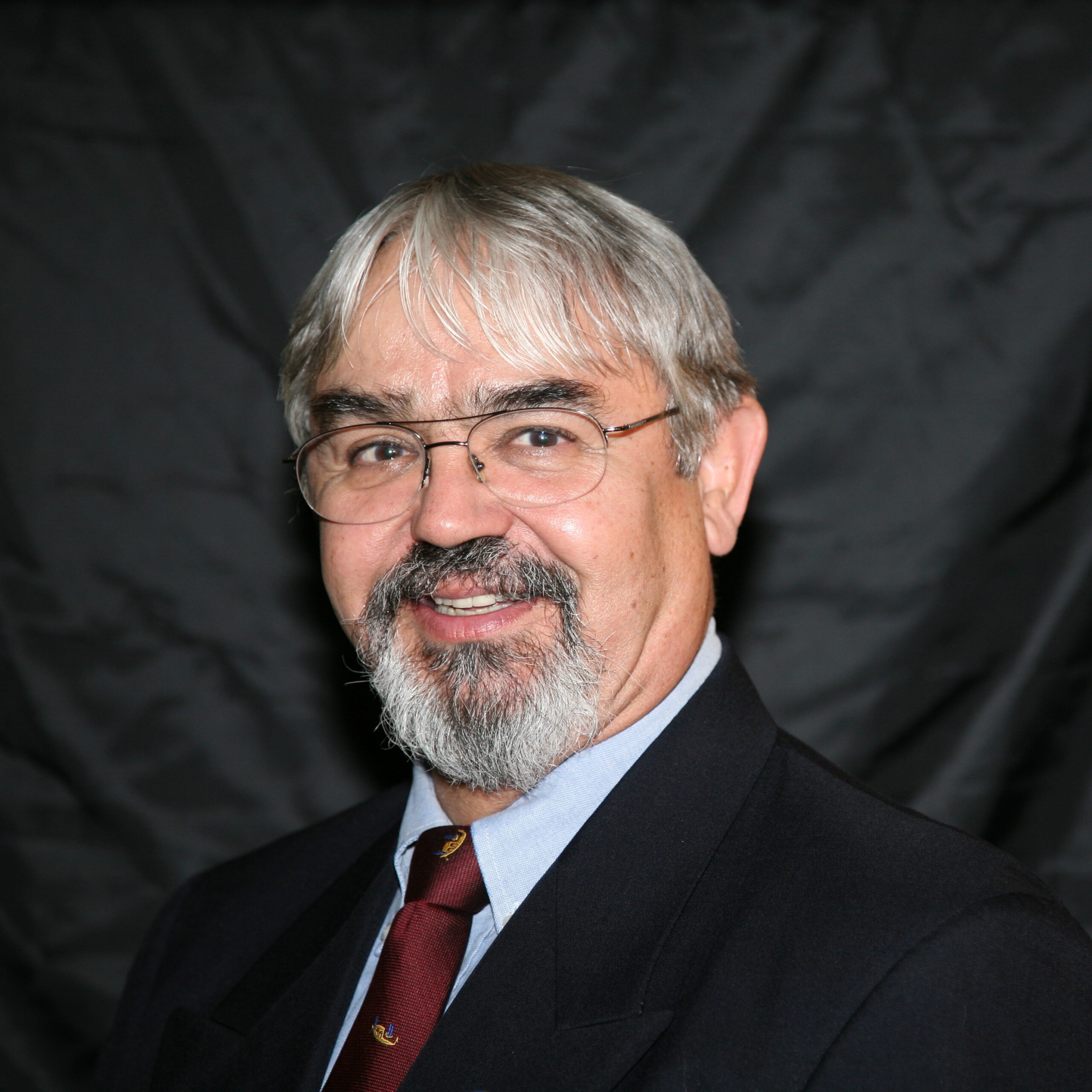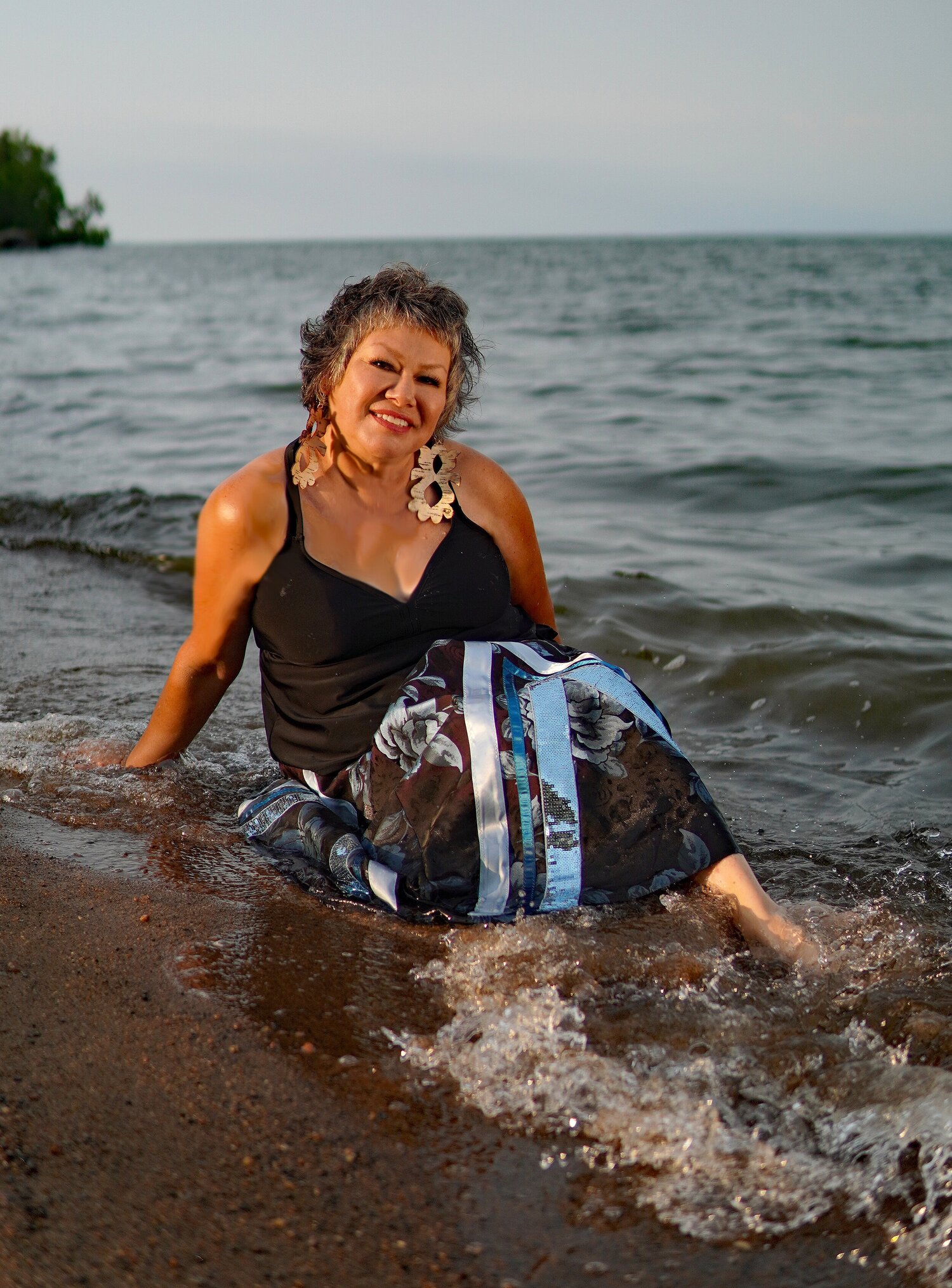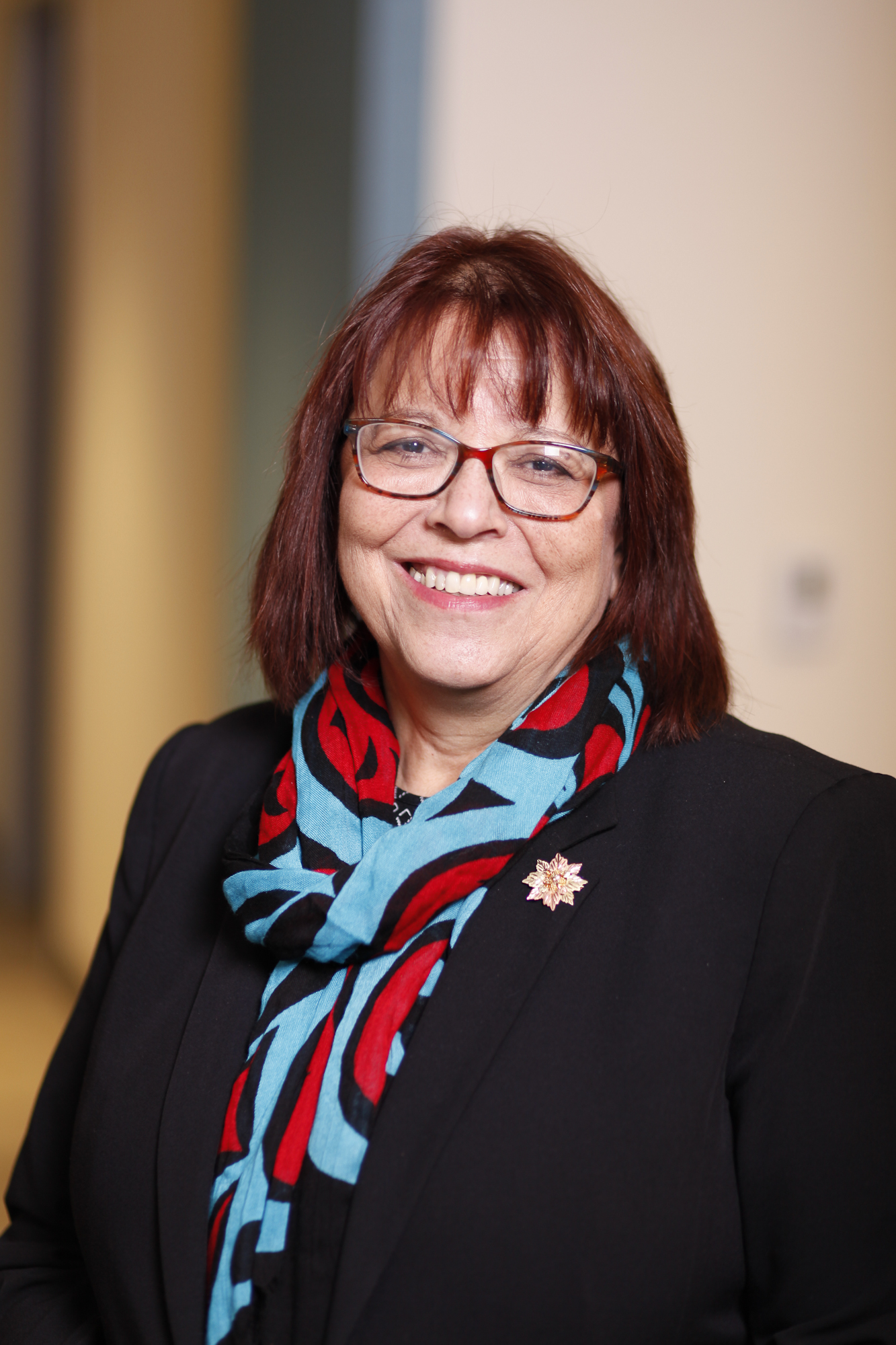12th Annual Dr. Carlos Montezuma Honorary Lecture and Awards
Thursday, November 18, 2021
12th Annual Dr. Carlos Montezuma Honorary Lecture and Awards
Thursday, October 18, 2021

Join us for our signature award presentation honoring significant contributions to Native American society, culture, and history.
Dr. Carlos Montezuma (Yavapai) was born in Southern Arizona around 1866 and was given the name Wassaja (signal/beckoning) by his birth parents. At age 5, he was abducted by Tohono O’Odham (Pima) raiders together with other children to be sold or bartered in nearby Mexican and Anglo villages. Wassaja was brought to Adamsville, a mixed Anglo and Mexican village, where he was offered to Carlo Gentile, an Italian photographer from Naples, who adopted Wassaja as his own son and renamed him “Carlos Montezuma,” which was based on his first name, and partly from the Montezuma ruins near Adamsville. Eventually the two moved to Chicago where Carlos graduated from the University of Illinois in 1884 and the Chicago Medical College in 1889.
After several years of working for the Bureau of Indian Affairs, Montezuma relocated to Chicago to establish a private medical practice. From then until his death in 1923, Dr. Montezuma worked as a physician and a social justice activist for American Indian rights. In 1904, he became one of the founders of the Society of American Indians, which was focused on improving the living, social, and political situations of American Indians. He frequently noted the failures of the BIA in upholding treaty rights and obligations, the lack of citizenship for American Indians, and general difficulties for American Indians in a settler-colonial society. In December 1922, Dr. Montezuma returned to his home reservation due to illness. He passed away on January 31, 1923.
2021 Woodrow “Woody” Crumbo Awardee
For exemplary service and philanthropic giving in promoting American Indian culture to:
Delina White – Minnesota Chippewa Tribe, Leech Lake Band of Ojibwe, is a Native Apparel Designer, Beadwork Artist and founder of IamAnishinaabe. She focuses on the materials, symbolism, and design patterns of Great Lakes nations’ art within the context of history as an interdisciplinary approach to sharing the values, beliefs, and culture of Native people.
2021 Elizabeth Seabury Mitchell Awardee
For exemplary service and philanthropic giving in promoting American Indian culture to:
Cheryl Crazy Bull, Wacinyanpi Win (They Depend on Her), Sicangu Lakota, has served as President and CEO of the American Indian College Fund since 2012. A lifelong educator and community activist, Cheryl is an advocate for self-determination focused on Native voice, philosophy, and traditions as the heart of the people’s work in building prosperity for current and future generations.
Cheryl’s experience includes serving Sinte Gleska University as a faculty member, department chair, and Dean of Academic Affairs, and Vice-President of Administration; St. Francis Indian School as Chief Educational Officer; and 10 years as President of Northwest Indian College.
She is on the board of IllumiNative, an organization that focuses on a widespread accurate narrative about Indigenous people and Native Ways Federation, a national association of Native non-profits.
Crazy Bull is a frequent public speaker and presenter about indigenous education and issues with a focus on indigenous higher education equity and place-based education. She was awarded an honorary cultural degree from Sinte Gleska University, an honorary doctorate from Seattle University, and other awards for her leadership as a Native educator and Native woman.
In 2015 she was named by Indian Country Today magazine as one of the 50 most influential people in Indian Country. In 2017 she was one of two American Indian women leaders honored by National Indian Women’s “Supporting Each Other” group. The Native American Finance Officers Association honored her with a Lifetime Achievement Award in October 2019. In March of 2020, CBS paid tribute to Crazy Bull, along with six other women, as an example of what it means to challenge and overcome stereotypes and biases in their industries as part of a series of CBS CARES public service announcements in primetime on the CBS Television Network.
2021 Lecturer and the Dr. Carlos Montezuma Honorary Awardee
For a distinguished speaker whose contributions in social activism advanced Native peoples on a national scale to:

Lawrence R. Baca (Pawnee) In 1976, he was the first American Indian lawyer ever hired at the United States Department of Justice through the Attorney General’s Honor Law Program. He was also the first American Indian attorney ever hired into the Civil Rights Division. In CRD, he served in the Office of Indian Rights, the General Litigation Section, the Housing and Civil Enforcement Section, and the Educational Opportunities Litigation Section. He ended his 32-year career with four years’ service as a Deputy Director of the Office of Tribal Justice. Lawrence formed the American Indian Lawyers Association of the Department of Justice in 1978 and was its Chairman for 30 years. At the time of his retirement in 2008, he was the longest-tenured American Indian Attorney in the history of the Department.
Lawrence has been a member of the National Native American Bar Association since 1978. He has served in every position on the Board of Directors, including three terms as President. He has served on the Board for 25 of the past 35 years, including his current four-year appointment as Treasurer. As a member of the Federal Bar Association, Lawrence established the Indian Law Section, where he was Chair for 20 years. He then served on the FBA National Board of Directors for eight years, including being National President in 2009-10. He was the first American Indian president of any national non-Native bar association. In 2008, the Indian Law Section established the Lawrence R. Baca Lifetime Achievement Award for Excellence in Federal Indian law. He was its first recipient. As a member of the American Bar Association, Lawrence served on the Committee on Problems of the American Indian, the ABA Task Force on Race, the Commission on Racial Justice, and the Commission on Racial and Ethnic Minorities in the Profession. He served three terms as Chair of the Commission on Racial and Ethnic Minorities in the Profession. He was the first American Indian to chair any commission of the ABA.
Lawrence is a member of the Bar Association of the Commonwealth of Virginia.
This is a free virtual program open to our members, friends, and visitors presented via Zoom Webinar. As we continue to work on developing more programs, please consider making a donation to the museum. https://gichigamiin-museum.org/donate/
For more information about this program, please contact: info@gichigamiin-museum.org


